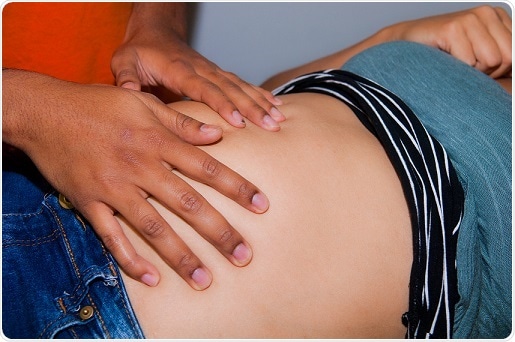Nov 18 2016
November 13 – 19 marks Perinatal Anxiety and Depression Awareness Week. Anxiety and depression can hit mums and dads from pregnancy right through their bub’s early years.

Around 1 in 10 pregnant mums and 1 in 20 partners experience anxiety and depression and the figures increase after birth to one in seven mums and one in 10 partners affected.
Issues such as exhaustion, stress, relationship and financial challenges and simply feeling out of your depth all impact on people’s ability to cope with pregnancy and parenthood.
Apunipima Maternal and Child Health Team Leader Johanna Neville said Aboriginal and Torres Strait Islander people living in remote Cape York communities had some special challenges as well as special support.
‘Women often have to leave community to give birth – travelling to Cairns six weeks before their due date without any of their family or friends around them at this most vulnerable time. The Apunipima Maternal and Child Health Team helps families stay strong by offering the health worker led Baby One Program and Home Visiting Program. The program works in partnership with regular clinic visits with the nurses and supports all parents-to-be and parents with babies to feel confident in raising their young children.’
‘As well as providing vital information, support and items such as nappies and safe sleeping capsules, the health workers are there for the mums and families to yarn to about how they are going.’
‘This means that a mum who may not make it to the clinic still receives 15 home visits throughout pregnancy until bub is nearly three. Some people find it hard to reach out for help and our programs, which are all about checking in, can really make a difference.’
Perinatal Depression & Anxiety Australia (PANDA) CEO Terri Smith said the majority of people aren’t aware of how common these feelings are or how much help is out there.
‘Having a baby is both an exciting and challenging time. Adding anxiety or depression can make it difficult to function and feel like you are a good enough parent.’
Both women and men, from all cultures and backgrounds, can experience perinatal (during pregnancy and the year after birth) mental health issues and these can vary in intensity and symptoms. As a mum or dad it is easy to feel guilt and shame that can get in the way of seeking the help you need. If this is how you feel, know that you are not alone. Having perinatal anxiety or depression does not make you a ‘bad parent’. In fact, seeking help early leads to a faster recovery with less impact on you, your relationship with your baby, partner and family.’’
‘Just go into your local clinic for a yarn with a Health Worker or Maternal and Child Health Worker,’ Johanna said.
‘There is a lot of help available and believe it or not, you are not alone and people will understand and be happy to help.’
‘Family members and friends also need to reach in to pregnant and new parents and check to make sure they are ok.’
Perinatal Anxiety and Depression Awareness Week takes place from 13 – 19 November.